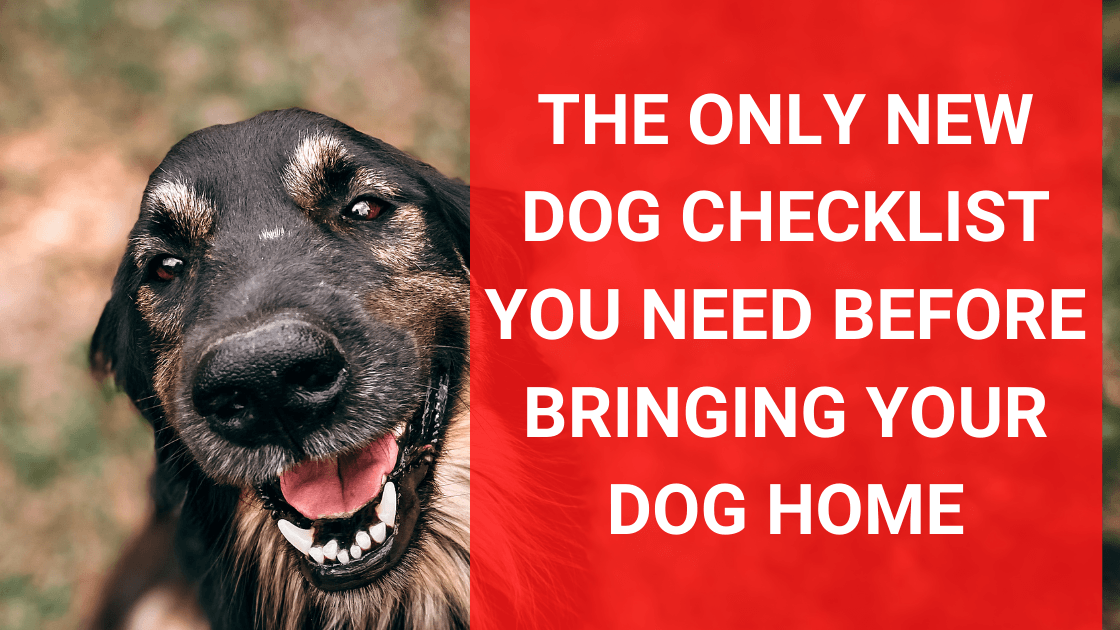Adopting an adult dog is a wonderful option for so many people and families. Not only are you rescuing a dog that’s in need, but skipping the whole puppy phases comes with its own benefits!
The thing about adopting an adult dog vs getting a puppy is that there are a few differences in how you should prepare before the big day. Here you’ll find a discussion of the benefits and tips to make the first week home a success.
I also want to walk through some considerations before taking the plunge on adoption because the last thing we want is for that dog to wind up back in a shelter or foster care program. Sometimes people with the best intentions just don’t do enough prior research and prep before committing.
Alright, let’s get to it. Adopting an adult dog: everything you need to know!
Things to consider before adopting an adult dog
Anyone who considers themselves a dog lover has surely that about getting a dog – and in particular about adopting an adult dog. The thing is, loving dogs is a whole lot different than committing to one for their entire life.
This is especially true for an adult dog that might come with their own set of challenges based with their past. Here’s a list of considerations before moving forward with your decision to adopt. These aren’t meant to dissuade you, but instead help you realize just how big of a commitment this really is!
Questions to ask yourself before adopting a dog
- Does my current lifestyle support the addition of a dog? Will my dog be left alone too often or do I travel a lot? Do I like to go out in the evenings after work? Am I often away from home?
- Will I have time to exercise my dog daily? If not can I budget for a dog walker?
- Can I afford to care for a dog? Consider vet costs, dog food, boarding, and other dog essentials
- Do I have a fenced in yard or dog friendly outdoor space? Does my apartment building allow pets?
- Will I commit to this dog even if behavior issues arise? This is an important reality to prepare for when adopting an adult dog
- How will your dog fit into your life plans? It’s important to consider things like marriage, having kids, career changes, and big moves before adopting a dog
- Do you currently have young kids in your home? Make sure you are ready to take another big commitment onto your plate
- Have you owned a dog before? Certain breeds/mixes and ages are much easier than others. Keep in mind that from ages 1-3 dogs are often the most frustrating and demanding! They are testing limits and in need of significant daily exercise to keep unwanted behavior at bay
- Is everyone in your family or home on board with the idea of you getting a dog?
7 Benefits of Adopting an Adult Dog
Now that you’ve done a sort of personal reflection on whether a dog will fit into your lifestyle let’s talk about all the amazing benefits of adopting an adult dog!
Often adoption is 100% the way to go – there are so many dogs out there in need of stable, loving homes. And what’s more, they’ve got a lot of love to give, too! There’s also some serious advantage to skipping the whole puppy stage. Let’s take a look at some of the amazing benefits of adopting an adult dog.
Benefits to adopting an adult dog
- Most older dogs, even ones surrendered to shelters and adoption agencies, have already been housetrained
- Adult dogs can actually be easier to train! It’s a myth that you can’t teach an old dog new tricks
- Older dogs (4+) may not need as much exercise as puppies and 1-3 year old dogs. Don’t read this as no exercise, but it probably won’t be as intense. This might be a better fit for some families
- Many adult dogs in shelters do have basic training and manners, so it’s not like starting completely from square one
- Adult dogs have a harder time finding homes and getting adopted than puppies
- You get the advantage of asking lots of questions about their personality, behavior and needs based on the shelter or adoption agencies experience and knowledge of the dog
- Adult dogs are ready to take on physical activities right away! You aren’t supposed to run or do lengthy hikes and walks with puppies until they are close to a year old. Adult dogs can join you for more vigorous exercise from the start. Read our tips on how train your dog to run with you if this interests you!
Adopting an Adult Dog? Questions to ask
Now that you know all of the awesome benefits, let’s go over some questions you should ask before adopting. These will help you choose a dog that’s a great fit for your family. It is important to recognize that adult dogs in shelters do come with their own history, potential trauma, and behaviors.
Asking questions is the single best way to find an adult dog that’s a good match for you. What’s more, you’ll know exactly what you’re getting yourself into before you bring them home.
Luckily, shelters and adoption agencies try to provide as much knowledge and transparency as possible about the dogs in their care. Their goal is to find their dogs a forever home, and honesty on both ends is key!
Questions to ask before adopting an adult dog
- How old is the dog?
- Do you know what breed (or mix of breeds) the dog is?
- How is the dog’s health? Does he have any known conditions or predisposition to certain ailments? What about allergies or diet limitations?
- Has the dog suffered any serious injuries
- What do you know about the dog’s history or past home(s)?
- Why was the dog surrendered to the agency or shelter?
- Does the dog have any known behavior issues?
- Does this dog have aggression issues?
- Specifically, does this dog have food aggression issues or other signs of a past with food insecurity?
- Will this dog do well with other dogs?
- How is the dog with other people?
- How is the dog with children?
- Does the dog have basic training and manners?
- Is this dog house trained?
- In its past, was this dog living in a home or kept primarily outdoors?
- Have you noticed any obsessive behaviors or quirks?
- Does this dog have a history of abuse?
- Has the dog ever been in foster care? If yes, ask specifics about that situation
- What kinds of toys does the dog like to play with?
- What level of exercise will this dog require?
- How would you describe this dog’s temperament?
- Will this dog be a good fit for a novice or first time dog owner? (if applicable)
- Does this dog travel well/tolerate the car?
- What will the grooming needs of this dog be like?
Tips for the transition into your home
Once you’ve chosen the right dog for you, there are some concrete things you can do to help with the transition. Remember, when you adopt a dog, no matter what their history is, you know they’ve had some instability in their past.
The number one key during the first week with your newly adopted adult dog is going to be routine, predictability and consistency. You want your dog to feel safe and that everything they need will be provided. Additionally, spending lots of time bonding with your dog is very important. A secure attachment is critical (and really what it’s all about, right?!).
Ideally, you will be able to spend the first 5-7 days with your dog. If it’s not possible to take that much time off, see if you can at least make a long weekend a possibility. Constant companionship and connection in those first days can make for a smoother transition.
Here are some other tips:
- Gather up supplies ahead of time. Have things set up and ready to go! (check out our New Dog Checklist for everything you need)
- Create consistency and routine from day one. This means regular feeding times, taking your dog out at the same times every day, exercise and play sessions at roughly the same time, and a predictable nighttime routine
- Take your dog out to use the bathroom a lot. Even if they are housetrained, they need to get the hang of how to tell you are where to go in their new home
- Work on training from day one and be consistent. Thing through things like where they should go to the bathroom, if they’re allowed on furniture, and how to handle accidents and unwanted behaviors. The Monster K9 Guide to Adult Dogs can really help with this for new owners!
- Give your new dog tons of positive attention and love, let them know that you are their person
- Avoid having visitors for the first few days, you want your new dog to understand who is in their “pack” and what normal life is like here
- When you first arrive home, bring your new dog in on a leash and give them a tour of the home. If your dog immediately start picking up or chewing things they shouldn’tm get right on offering them something they can chew or hold in their mouth
- If you have another dog, make sure the two dogs meet outside first. If you have more than one dog already, have the new dog meet them one at a time
- Understand that your dog’s behavior in the first few days probably aren’t their true personality! Your new dog may be scared and uncertain. Accidents, destructive behavior, excessive barking and extreme separation anxiety from the main handler are not uncommon, even in dogs with no prior behavior issues. These first few days are not a representation of what they’ll be like forever!
Get excited about adopting an adult dog
The decision to adopt a dog is a wonderful choice. There are so many dogs out there looking for their forever home with so much love to give. We adopted two of our dogs, and the bonds we’ve create and joy they bring us is unmatched!
As you prepare to adopt an adult dog, be sure to check out all of the awesome information and resources here at Monster K9. You’ll find loads of info on the blog, and have all the necessary information related to owning, training and caring for your adult dog at your fingertips with the Monster K9 Guide to Adult Dogs. Be sure to check them both out!



